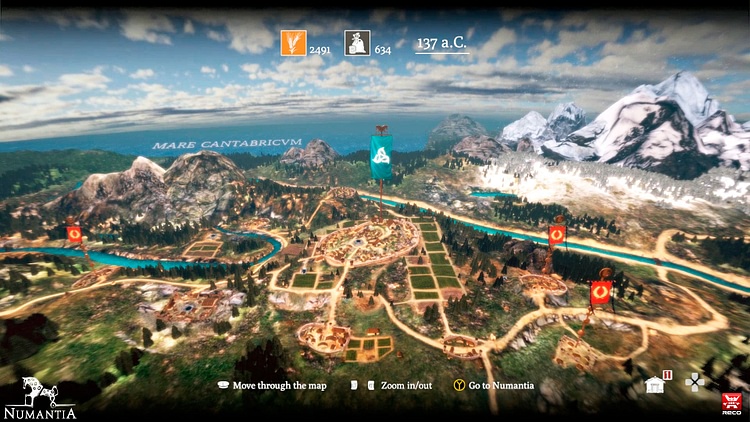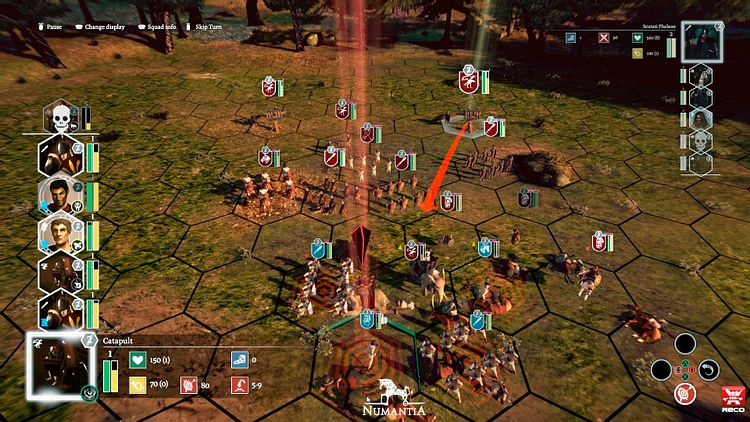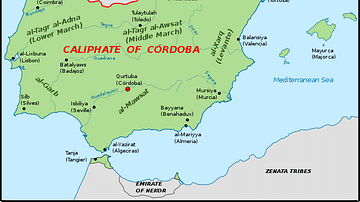RECOTechnology is a small game-developer studio based in Madrid, Spain. Their latest video game - Numantia - allows players to explore the conflicts between the ancient Iberians and ancient Romans. James Blake Wiener of Ancient History Encyclopedia (AHE) speaks to Mr. Pablo Serrano of RECOTechnology about the game and ancient Iberia in this exclusive interview.
Pablo Serrano is a video game developer based in Madrid, Spain. He has worked on several projects in various studios through the last years. He studied history and art and is an avid devotee of ancient history. He is currently RECOtechnology's project manager for the video game Numantia.
JBW: Pablo Serrano, welcome to Ancient History Encyclopedia (AHE) and thank you for speaking with me.
What provided the inspiration to create a video game set in Iberia during the wars between the Celtiberians and the Romans in the 2nd century BCE?
PS: Thank you for inviting me! It was something we wanted to do for quite a while now; a strategy game that could be played on both PC and consoles. These games are typical on PC but not very common on consoles due to the difficulty of mapping every option on a controller.
How to 'translate' these mechanics was our first challenge, the next one came with the particular setting for our game. We knew from the beginning that we wanted something historical, something based on true events. We considered a number of periods and conflicts, but we could not find anything that had not been explored already.
Then, we came up with Numantia. Numantia offered a different historical setting, not quite exploited in the mainstream media. We are used to seeing Celts as the figure of the so-called 'barbarians', fighting against the Roman Empire, or Julius Caesar. However, we are not used to hearing stories from a period before the Roman Empire and especially focused in Iberia. We have seen Hannibal, and Carthage, and even Viriathus, but we have not encountered the Numantians. Soon after we realized this, Numantia became our next project.
JBW: Combining historical accuracy, a passion for video games, and an educational take on the history of ancient Spain is an arduous process. How were you able to create a game that is at once both appealing to “hardcore gamers” and those with an interest in the distant past?
PS: Well, it is indeed a complicated process. Every game has a target, and we did not want to alienate anybody. We decided to introduce several elements in our game in an attempt to attract as many potential players as possible.
The way we see it you have different reasons to play Numantia: a solid TBS (Turn Based Strategy) game if you are just into game mechanics, a storyline with its own heroes that expands for more than 20 years if you enjoy story-driven video games; and real scenarios, figures, troops, and your own section of Extras, filled with additional information in case you want to learn more about Numantia.
JBW: The Numantia is divided into two campaigns that allow the player view history from the Celtiberian side with the Numantian army or from the Roman side with the Republican army. Do you feel that players will be drawn to one side more than the other? Was it difficult to create a video game that makes two opposing sides equally alluring?
PS: We discussed this with the team several times, actually. I suppose that the Numantian side will have more presence in Spanish territory as an incident widely known here; the Romans have always been more appealing internationally, but it is also true that the main public tends to empathize more with the oppressed.
What was extremely important for us was to avoid falling into the classic 'good guys and bad guys' archetype. From the very beginning, we decided to let you play your own parcel of history and be you and just you the one drawing conclusions of what happened. Numantia is a history told from two sides but we do not want to influence your own interpretation of the events.
JBW: Might you comment on the research that went into the creation of Numantia - how long did it take to research the requisite facts and then produce the animation?
PS: We had our own historical advisor working with us during the development of Numantia. He has helped us greatly on matching dates, creating gear and units, and in our own understanding of the Celtiberian society of this particular period. And of course, we have individually expanded that documentation with lots and lots of books and documents regarding Numantia and the Iberian Peninsula during that time.
JBW: We still know very little about the Celtiberians, especially compared to their Roman nemeses. How does Numantia expand our understanding of the Celtiberians' role and importance in ancient Iberian history?
PS: One of the main features of Numantia is our 'event system'. Through this mechanic, you can play through our campaign by completing events. The nature of these events can be different; sometimes you face a diplomatic issue, sometimes an attack from the enemy, sometimes it is a matter of supplies, the management of your settlement, and often it is about personal decisions in the lives of your heroes. We expand the understanding of Celtiberian (and Roman) society through these events, providing you with the opportunity to take these decisions personally. And of course, having to deal with the consequences of your judgment!
JBW: Does RECOTechnology plan to create more video games set in ancient Iberia in the near future?
PS: That would depend on Numantia, really. We would love to bring you more events, and characters, and famous battles. If the players like our new game, we will craft more for sure.
JBW: Thanks so much for your time and consideration! I wish you much success on behalf of everyone at Ancient History Encyclopedia.
PS: Thank you very much for having me! Hope you hear from Numantia in a very near future!









